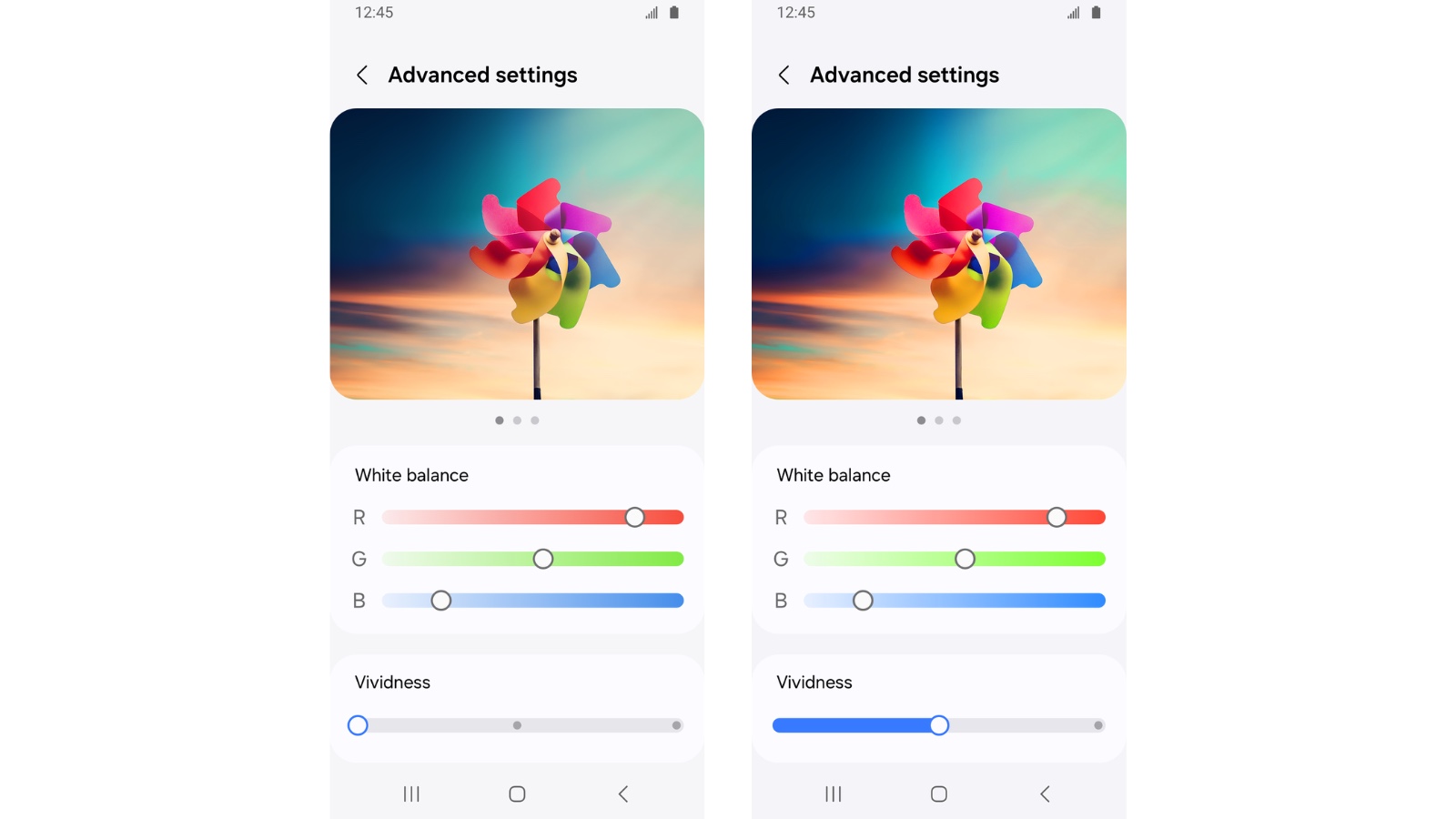
Samsung is ready to deliver a fix for a display issue bedeviling some Galaxy S24 owners, where the colors on their new smartphone look a little washed out.
The problem first surfaced as Samsung's latest flagship phones went on sale the end of last month and seems to primarily affect the Galaxy S24 Ultra. According to some users, the Vivid setting for their phone's display isn't showing the more saturated colors they expect, instead displaying colors not that different from the Natural setting.
Samsung says that a Galaxy S24 software update will start rolling out to phones next week where the chief addition will be a new Display Vividness option in the display settings. Using a slider, you'll be able to adjust the vividness of colors to your liking.

The slider is coming to the advanced settings section of the display settings. You'll find it underneath the controls that let you adjust the individual R, G and B colors for white balance.
The software update doesn't mention another display issue receiving some attention from Galaxy S24 owners — a Mura effect where clouding can occur on screens set at lower brightness levels. However, after our Galaxy S24 display testing, we believe the problem is related to hardware and not something a software update could address.
Display Vividness isn't the only feature coming via Samsung's next Galaxy S24 software update. The camera software will also get some tweaks aimed at delivering better zoom, portrait mode, night mode and rear video capture capabilities. Once again, the new Samsung phones rank among the best camera phones we've tested, though the Galaxy S24 Ultra fell short of the iPhone 15 Pro Max in our testing. We'll be interested to see if this software update makes enough of a difference to change our rankings.
Finally, the software update promises language improvements to the Galaxy AI translation features. Samsung didn't go into specifics, only saying that recognition and accuracy for all 13 supported languages will get a boost.
Look for this Galaxy S24 software update to start rolling out on February 22.






